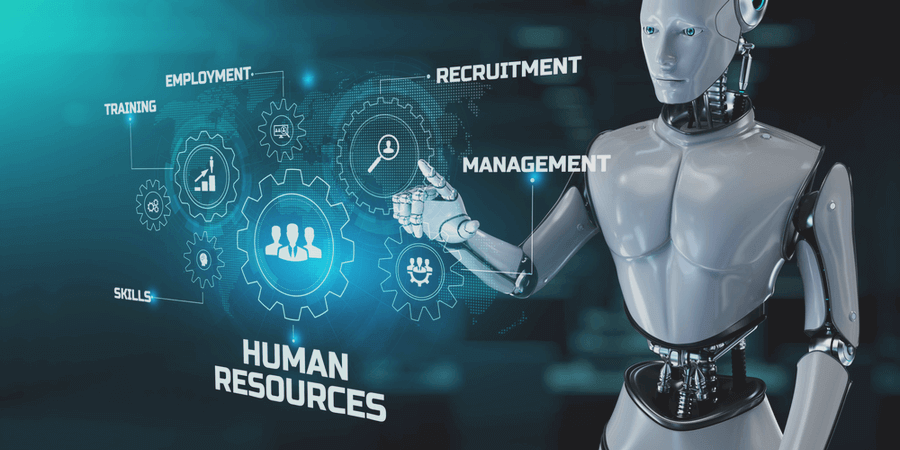Distinguished digital devices and technological tools are gradually becoming more integrated with diverse business processes, including human resources. Modern HR managers can adapt to disparate technologies focused on simplifying the recruitment process and targeting suitable candidates.
 Faster Screening
Faster Screening
Going through the applications of diverse candidates applying for a job is among the most time-consuming tasks for HR personnel. This can be performed faster by leveraging digital recruitment technologies. Major organizations around the globe are using digital technologies for screening, hiring, and testing new talents.
Various digital machines are used to scan the work samples of the candidates, analyze their faces, evaluate their social media posts, and more.
A leading multinational consumer goods brand is using AI to hire all its entry-level workers for more than a year. They ask each candidate to take part in a neuroscience-based activity that helps in measuring their inherent traits. After this, the AI evaluates and analyzes the candidate interview and rates based on thousands of data points. These data points included word choice, facial movements, vocal intonation, and other elements.
This process was highly successful, and as a result, the company is trying to adopt a similar system for lateral internal changes and mid-career hires.
 Fairness
Fairness
With every passing day, a growing number of companies are trying to adopt ways that help in removing bias from the recruitment process. Smart recruitment technologies can significantly help, particularly in identifying ways to improve job posts and descriptions and develop questionnaires that are not biased. The technology helps in eradicating issues associated with human bias. It can also develop certain preferences based on favourable conditions and traits encountered by it. Maintaining the quality of data is vital to keep this concern in check. In simple terms, feeding an AI system with healthy data shall ultimately lead to more accurate, unbiased and improved outcomes.
 Remote Hiring
Remote Hiring
The gig economy is rapidly picking up pace across the globe. Smart talent recruitment solutions can be useful, especially in hiring these candidates. Certain technologies can help in identifying the parameters and traits needed for a certain remote working role.
It can go through the previous job history of the candidates, as well as evaluate work samples and interviews to determine if they are well-suited for the remote position offered by a company.
Post-interview analysis
One of the most incredible aspects of AI technology is that it is constantly learning. The AI-powered tool can effectively streamline the whole interviewing process and develop a more robust hiring process.
Trending HR technologies
 Automation and Artificial Intelligence:
Automation and Artificial Intelligence:
Automation and AI help HR personnel significantly save time on diverse repetitive and administrative tasks. For example, these technologies can be used to create self-tracking apps, with the ability to log in and track the status of their job evaluations. Virtual assistants can also remind candidates about upcoming interviews and offer real-time updates.
Talent Acquisition Software:
Social media integrated Talent Acquisition Software or ATS helps HR personnel to post on several social networking sites, career pages, and job boards from a single platform. Such software can facilitate automated resume parsing and interview scheduling, which considerably reduces the workload of the recruiters. There are smart filters present in many ATS, which helps in the faster short-listing of candidates.
 Cloud Technology:
Cloud Technology:
HR professionals can gain a good understanding of cloud-based applicant tracking systems and pre-selection platforms to centralize the business and HR data
It makes it easier to organize, manage, and access payrolls, feedbacks, onboarding, and more. It also reduces back-and-forth communication between departments, which leads to better turnaround times.
Digital HR systems can also improve transparency and communication within a firm, resulting in superior employee retention and engagement. One can enhance consistency across a company by maintaining policies, best practices, and performance metrics on the cloud.
 Gamification techniques:
Gamification techniques:
Incorporating gamification technologies into the HR process is gradually becoming popular to make the system more engaging and facilitate better collaboration. It can augment by creating interest among potential candidates and evaluate whether certain applicants could fit in with the culture and environment of the company.
Most times, gamification techniques can help employees to connect better with their team.
 Aligning the technologies to the goals of a company will benefit both the employees and the organization.
Aligning the technologies to the goals of a company will benefit both the employees and the organization.

